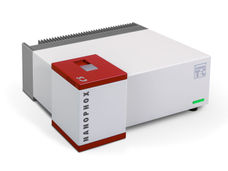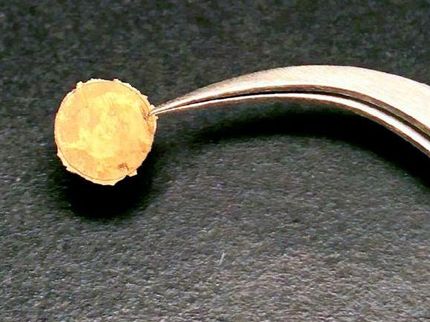Nanosilver has no place in food, textiles or cosmetics
BfR currently advises against using nanoscale silver ions in consumer products
The manufacturers of consumer products have made use of the antimicrobial properties of silver ions for some time now. Recently, silver particles in the nanorange have likewise been used. For instance, the surfaces in fridges coated with nanosilver are intended to inhibit the growth of germs and nanosilver aims to prevent odour formation in sports socks. It is not possible at the present time to determine in a definitive manner whether nanosilver constitutes a health risk for consumers. “Until we are in a position to reliably rule out potential health risks, we recommend that manufacturers refrain from using nanosilver in consumer products”, says BfR President Professor Dr. Dr. Andreas Hensel.
Silver and silver compounds release silver ions that can inhibit the growth of germs. For that reason they are used for instance in cosmetics, textiles and household appliances. Furthermore, silver is approved as a dye for food (E174).
Recently, the manufacturers of consumer products have been increasingly using silver in the form of nanoparticles, too. Nanoparticles are particles with a diameter of less than 100 nanometres. The properties of nanoparticles differ from those of larger particles of the same substance. It is these special properties that make them interesting for various applications. However, it has still to be ascertained whether their toxic properties change and they could become a health risk for consumers.
BfR feels there is a need for research to elucidate the fundamental issues in conjunction with the use of nanoscale silver as an antimicrobial material. On what scale do consumers come into contact with nanoscale particles? How big is the danger of resistance development?
BfR recommends refraining from using any nanoscale silver in consumer products until a definitive safety assessment becomes available. In any case nanoscale additives in food require approval. Nanosilver has not been approved for use in food. BfR welcomes this in the context of the yet to be answered questions about risk assessment.
Organizations
Other news from the department science
These products might interest you

NANOPHOX CS by Sympatec
Particle size analysis in the nano range: Analyzing high concentrations with ease
Reliable results without time-consuming sample preparation

Eclipse by Wyatt Technology
FFF-MALS system for separation and characterization of macromolecules and nanoparticles
The latest and most innovative FFF system designed for highest usability, robustness and data quality

DynaPro Plate Reader III by Wyatt Technology
Screening of biopharmaceuticals and proteins with high-throughput dynamic light scattering (DLS)
Efficiently characterize your sample quality and stability from lead discovery to quality control

Get the chemical industry in your inbox
By submitting this form you agree that LUMITOS AG will send you the newsletter(s) selected above by email. Your data will not be passed on to third parties. Your data will be stored and processed in accordance with our data protection regulations. LUMITOS may contact you by email for the purpose of advertising or market and opinion surveys. You can revoke your consent at any time without giving reasons to LUMITOS AG, Ernst-Augustin-Str. 2, 12489 Berlin, Germany or by e-mail at revoke@lumitos.com with effect for the future. In addition, each email contains a link to unsubscribe from the corresponding newsletter.



























































